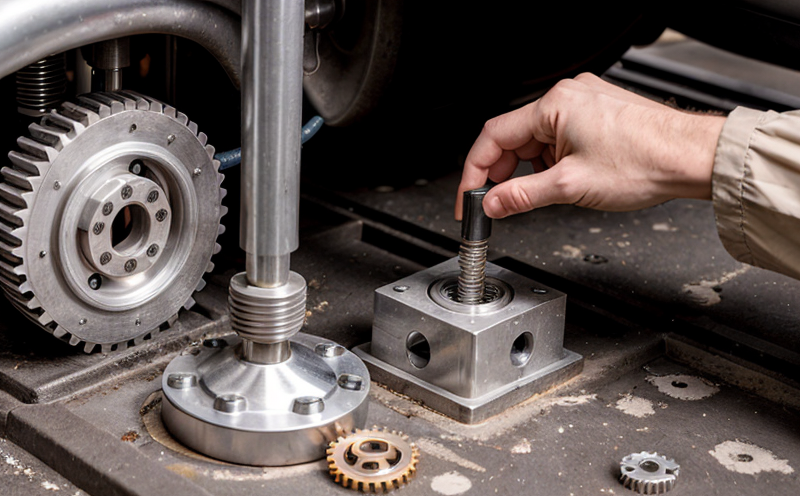ASTM E21 Elevated Temperature Tension Testing
The ASTM E21 elevated temperature tensile testing method is a critical procedure used to evaluate the mechanical properties of materials, especially those that are expected to operate under high-temperature conditions. This test is particularly important for additive manufacturing (AM) and 3D printing applications where parts may experience significant thermal stress during or after production.
The ASTM E21 method simulates real-world operating environments by subjecting specimens to controlled temperatures while measuring their mechanical properties such as tensile strength, yield strength, elongation, and modulus of elasticity. This information is crucial for ensuring the reliability and safety of parts in sectors like aerospace, automotive, and energy.
The test involves several key steps: specimen preparation, setup in the testing machine, application of a controlled temperature environment, and measurement of stress-strain behavior. Specimens are typically produced using AM techniques such as laser powder bed fusion (LPBF) or electron beam melting (EBM). These materials often exhibit different properties at elevated temperatures compared to room temperature conditions.
Accurate temperature control is essential for ASTM E21 testing, requiring specialized equipment capable of maintaining precise temperature gradients. The test can be conducted in both air and inert atmospheres like nitrogen or argon, depending on the material's sensitivity to oxidation. This ensures that any observed changes in mechanical properties are due to thermal effects rather than environmental factors.
The results from ASTM E21 testing provide valuable insights into how materials will perform under actual operating conditions, allowing for optimization of AM processes and design of more robust parts. It also helps manufacturers comply with industry standards and regulations by providing consistent data that can be used in quality control and product certification processes.
| Standard | Description |
|---|---|
| ASTM E21 | Description of the standard for elevated temperature tensile testing. |
| ASTM E8 | Tensile testing methods generally applicable to metallic materials. |
Applied Standards
- American Society for Testing and Materials (ASTM) E21: This standard defines the procedure for conducting elevated temperature tensile testing on metallic materials.
- American Society for Testing and Materials (ASTM) E8: General requirements for tensile testing of metallic materials, which provides a foundation for understanding material behavior under stress.
Eurolab Advantages
At Eurolab, we offer comprehensive ASTM E21 elevated temperature tension testing services tailored to meet the specific needs of additive manufacturing and 3D printing applications. Our state-of-the-art facilities ensure accurate temperature control and precise measurement capabilities.
- Advanced Testing Equipment: We use high-precision equipment capable of maintaining consistent temperatures over a wide range, ensuring reliable test results.
- Experienced Technicians: Our team comprises highly skilled professionals with extensive experience in additive manufacturing and materials testing.
- Precision Instrumentation: Our laboratory is equipped with sophisticated instruments designed to measure stress-strain behavior accurately.
- Comprehensive Reporting: We provide detailed reports that include all relevant test parameters, ensuring full transparency for your quality assurance processes.
International Acceptance and Recognition
- The ASTM E21 standard is widely recognized by industry leaders in aerospace, automotive, and energy sectors.
- American Society for Testing and Materials (ASTM) standards are internationally accepted and form part of ISO/TS 15926-3:2014, which covers materials data for additive manufacturing processes.





